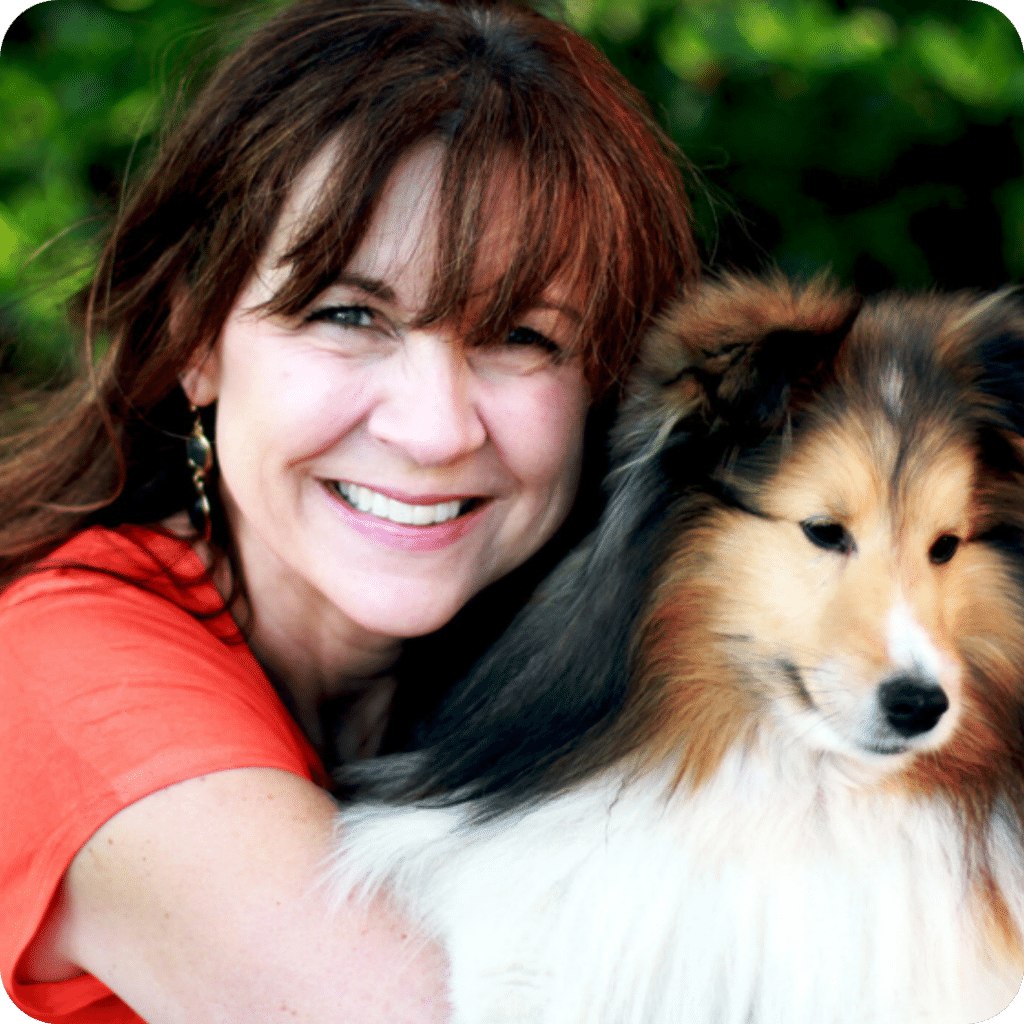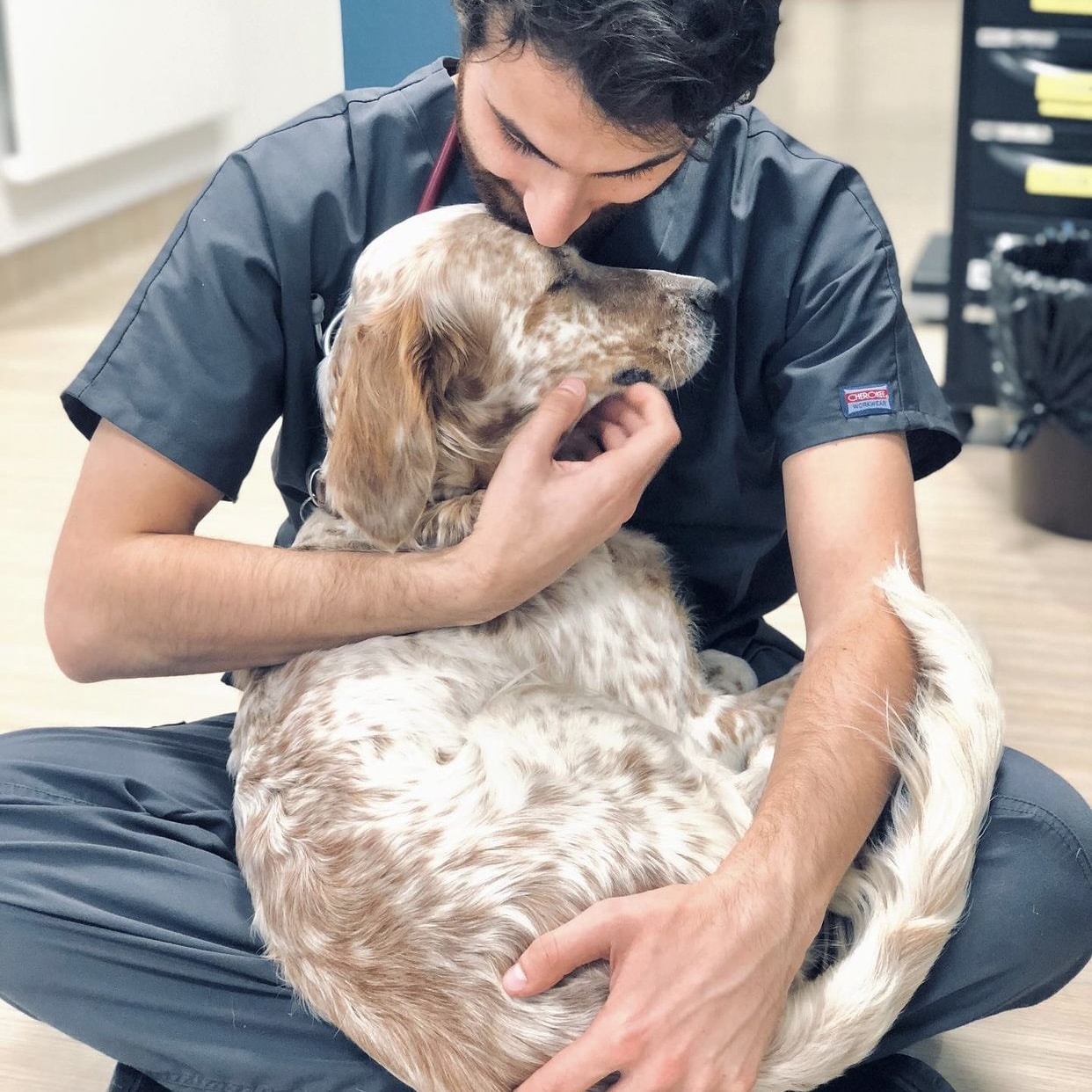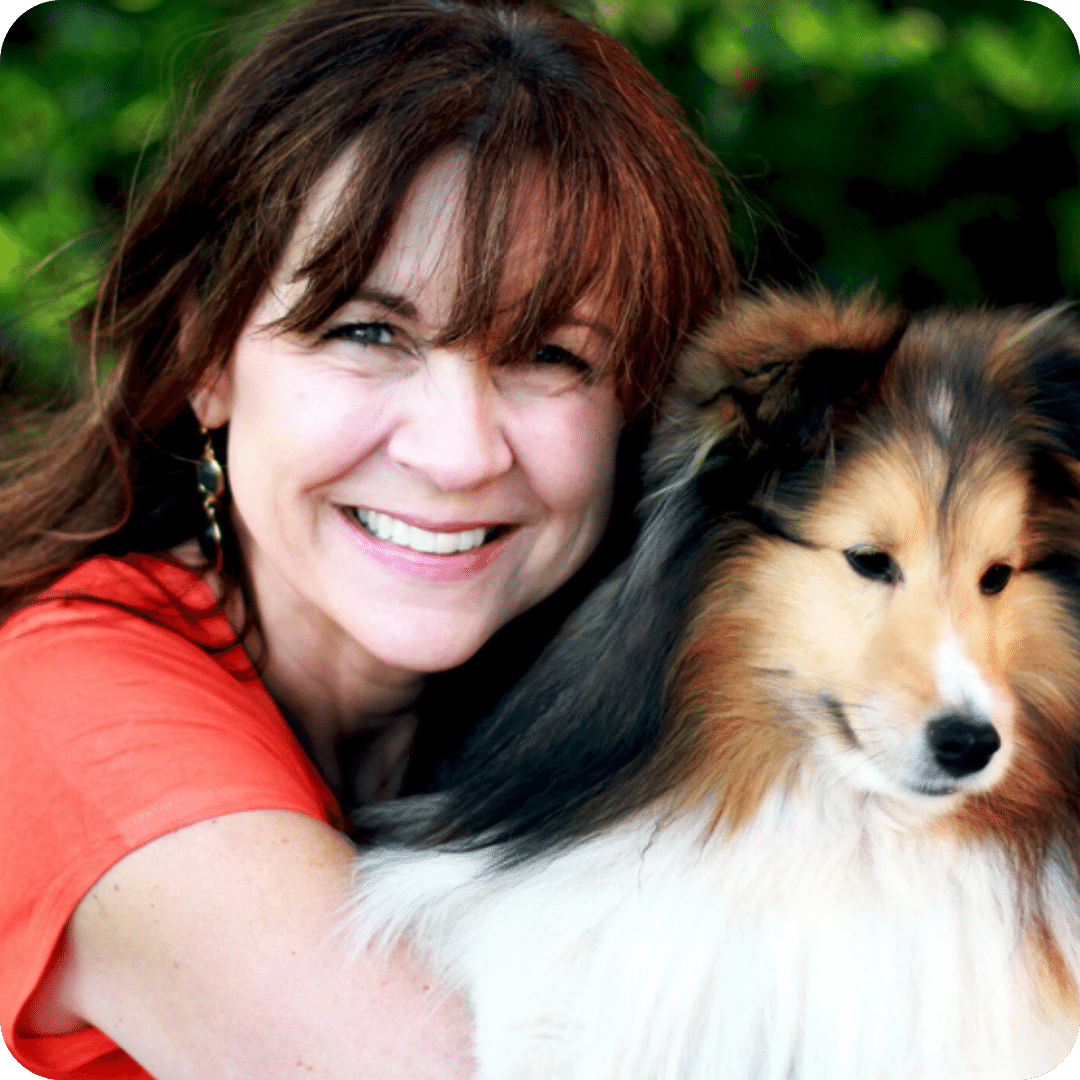Anxious and Successful

By Dr. Julie Cappel
Please note: The views expressed in this article are those of the author and do not necessarily represent the official stance of Not One More Vet. This piece is opinion and is intended to stimulate thoughtful reflection.
Can we be successful veterinarians and bring our anxiety along with us? Yes, I believe that we can! There is nothing wrong with you if you feel anxious, stressed, or worried. Most of us do.
Anxiety is part of the human experience. At some point, we all deal with stress and anxiety. It is our normal brain’s internal warning system going off—a way of trying to keep us safe from harm. John Delony, in his new book Building a Non-Anxious Life, describes it like a fire alarm going off (in your head) and inappropriately overreacting to something that is not an actual fire. I call it my “chihuahua brain” because it acts like a skittish, angry chihuahua that fear-bites before you even do anything to it.

Anxiety is not something that we want to lose altogether. We need some of our internal alarm system to keep us from harm; however, we need to learn how it affects us when there is no actual danger.
Anxiety is “a feeling of worry, nervousness, or unease, typically about an imminent event or something with an uncertain outcome.”
Brene’ Brown says, “Anxiety and excitement feel the same, but how we interpret and label them can determine how we experience them.”
Many people do not recognize their anxiety as a normal emotion and think there is something wrong with them or their bodies. Assuming that we are defective in some way may cause shame and lead to depression and even suicidal thoughts. We must make friends with and learn to tolerate some level of anxiety so we can live a mostly non-anxious life.
When I experience anxiety, I am usually preoccupied with the physical symptoms that I feel. I feel stomach aches, increased heart rate and palpitations, shortness of breath, or even, on intense occasions, sweating or shaking. Some people become worried about being weak or going crazy. When we think we are “not normal,” it only makes our anxiety worse as we spin in thoughts that this should not be happening. We give the anxiety more power by adding extra fear on top of the already brewing pressure.
The first thing we want to do when working with anxiety is to become more self-aware. We need to learn about our personal anxiety and how it shows up for us. What does your chihuahua brain tell you? It is unique in many ways, as we all have our reasons for feeling unsettled and worried. The more awareness you have and acceptance you feel, the less anxiety can grip you and take over.
So, let’s describe your anxiety. These are normal reactions to your internal alarm system – when your fight, flight or freeze reaction is activated.
Common anxiety signs and symptoms may include:
- Feeling nervous, tense, or restless.
- Having a sense of impending danger, panic, or doom.
- Having an increased heart rate or heart palpitations.
- Breathing rapidly (hyperventilation) or shallow breathing.
- Sweating.
- Trembling.
- Feeling weak or tired.
- Trouble concentrating or feeling distracted.
- Not thinking about anything other than the present worry.
- Avoiding or procrastinating your work or home responsibilities.
Now, let’s look at some of your thoughts that contribute to your anxiety. Do you worry about making mistakes or making an incorrect diagnosis? Do you feel anxious in an exam room when you don’t know the answer to a pet’s condition and must say, “I don’t know.”? Do you avoid anything that feels like change or conflict? Do you fear injury or illness? If so, you may be dealing with anxiety. Your brain is telling you that you are unsafe. Your thoughts are creating fear that leads to stress. You are not unsafe in most instances. Your brain is overreacting to your worried thoughts and creating physical symptoms in your body.
Anxiety feels dangerous and uncomfortable, but it is not dangerous. The first thing that you can tell yourself is, “I am safe. Nothing has gone wrong here.”
Once you have discovered how your anxiety shows up, what next? What can we do about it?
The Anxiety and Depression Association of America (ADAA) recommends some coping strategies to help you work through and with your anxiety.
- First and foremost, realize that you are a normal human, and you are safe. Anxiety often comes from our deep-rooted fears from childhood, and we all have them.
- When your brain takes off, do some deep breathing to reset your Vagus nerve. Take a very deep breath, suck in a little more, then blow it out hard. This breathing technique is called a physiologic sigh (two inhales followed by an extended exhale). Breathing will start to reset your body. Do it a few times till you feel more calm, then go on to some other steps.
- Talk to someone. Often, getting your thoughts out to a safe person will help.
- Do a thought dump or mind vomit. Write down your frightened thoughts to get them out of your head. Don’t judge them; get them out so you can see what is happening.
- Hire a therapist or coach to help you with your thoughts and feelings. They will help you get to know your thoughts and how to navigate them.
- Journal daily to learn the causes of your anxiety and to relieve your mind of the clutter.
- Keep physically active. A healthy body will be less anxious.
- Get outdoors and walk when possible. A change in scenery will often calm you down.
- Cut back or quit drinking caffeinated beverages and alcohol.
- Use stress management and relaxation techniques. Meditation or yoga practices are helpful.
- Stay off social media – take an electronics break.
- Try to get adequate rest and make sleep a higher priority.
- Eat healthier foods. Avoid Sugar and Salt.
Always remember that you are intelligent, talented, and totally worthy! You were created and put on this earth for your unique purpose: to bless and help another human or pet. You are uniquely worthy just the way you are.
If you are struggling to feel your worthiness, please reach out for help. You will learn to accept and lessen your anxiety, and you will be happy again.
Meet Dr. Julie Cappel
Julie is a life coach and veterinarian with a diverse range of experiences. She is a practicing small animal, avian, and exotic veterinarian, a successful business owner, a devoted wife, and a loving mother of two amazing adult children. Julie understands the pressure of balancing a demanding veterinary career with a family life that is rich with experiences and love, having personally navigated these challenges.
Julie has also faced and conquered the feelings of being overworked, overweight, overwhelmed, and under-appreciated. Her personal journey has led her to a place of self-love and enjoyment of her abundant life. She now coaches with compassion and humor, specializing in helping individuals find themselves, regain their confidence, and build the life and career they’ve always dreamed of.

In addition to her coaching practice, Julie hosts a popular podcast where she shares valuable insights, tips, and inspirational stories. She also has an upcoming book in the works, which promises to be a valuable resource for those seeking personal growth and transformation.
Julie’s coaching expertise extends to personal life and weight management, making her a trusted guide for individuals looking to improve their overall well-being and achieve their health and fitness goals.
